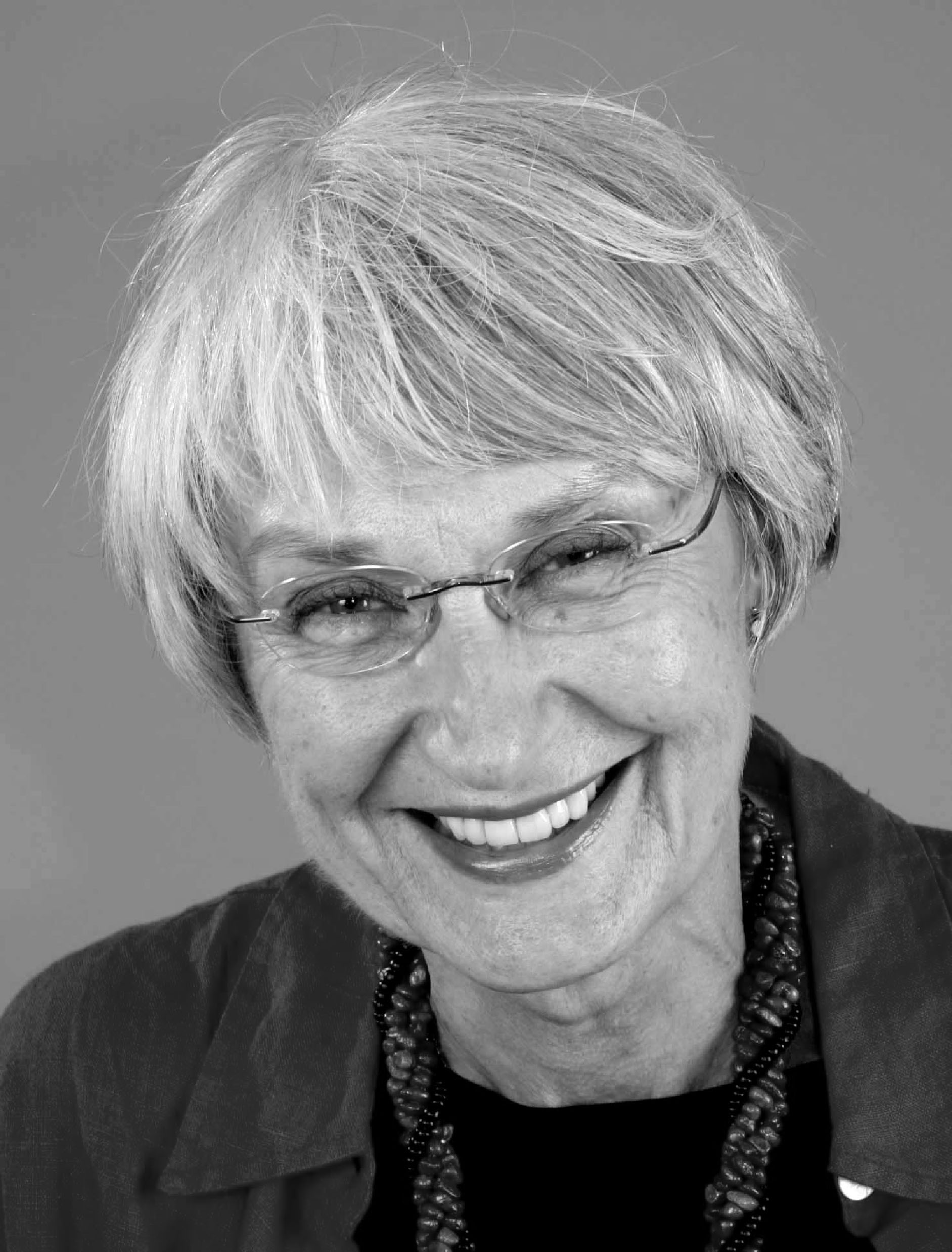New Jersey Future Blog
Making Women’s History Every Month – Meet the Women Board Members at New Jersey Future
March 29th, 2024 by Susan O'Connor
When women are involved in urban planning, they plan for all, according to Women Mobilize Women, a worldwide network of changemakers seeking to transform the mobility sector to become more diverse and to raise awareness on the topic of gender and transport amongst planners and decision-makers in the sector.
In honor of Women’s History Month, New Jersey Future had the opportunity to interview some amazing women on our Board of Trustees. We asked them about their experiences in the industries that represent, promote, and/or plan smart land use and growth policies and sustainability practices for resilient communities and a strong economy for everyone.
It was a privilege to hear directly from these women, who built lasting networks, honoring their trailblazing women mentors, advising the next generation of women leaders, and making a better Garden State for all. Each of their experiences, wealth of knowledge, and passion could make for their own blog posts, and we invite you to discover more about them.
None of us can do this all alone – Success comes from the power of women networks.
“Women influenced my interest in placemaking. It’s important to respect where we are and that these places are the beginning of community,” explains Ingrid W. Reed, Co-Founder of New Jersey Future in 1987 and former director of the New Jersey Project, Eagleton Institute of Politics. “It was growing up in Vineland, NJ, that I first became interested in placemaking. Vineland is a combination of what worked, matching older places with the spread that was taking place.”
Ms. Reed moved to Princeton in 1965 and was the recorder of planning meetings for the League of Women Voters. “The women in my community became more involved in town planning and started trading babysitting time so that we could be part of these discussions,” Ms. Reed reflected. “We wanted a say in the extension of US Route 1 and knew decision-making was in the hands of elected officials. The state controlled Route 1, and we wanted to influence the power structure on how it was going to be developed in our community. All along the way, women made a big difference in seeing the relevance of the questions being raised at the fast growth.”
At the time, no women served on boards of the counties, but all that changed in 1970 when Ms. Reed came on Mercer County Executive’s Planning board and remained for over 20 years. Around that time, she began organizing a group of concerned citizens that met in the basement of the Woodrow Wilson Institute. It was the start of discussions on New Jersey’s State Plan, and they knew they had to get involved by having their own informed conversations, as citizens were doing in Oregon and Florida. She reflects on that time fondly when the seeds of New Jersey Future were sown, all over quiche dinners.
“Region is as important as the individual town you’re living in,” states Ms. Reed. “How you’re growing also emphasizes what kind of infrastructure you have to support that. It was when they opened up development along the Hopewell Corridor that I got involved in conservation and joined the board of the Watershed Institute.”
Ms. Reed talked about the women trailblazers she’s known that have had an impact on New Jersey, including:
- Co-founder of New Congress of the New Urbanism’s Elizabeth Plater-Zyberg,
- Former NJF board member and Capital City’s Caren Franzini,
- Pinelands Preservation Alliance’s Candace McKee Ashmun,
- Helen Fenske, leader in the creation of the Great Swamp National Wildlife Refuge,
- Barabara Lawrence, co-founder of New Jersey Future and now a champion of the work we do through The Henry and Marilyn Taub Foundation.
Ms. Reed also credits the successful work of our program, Jersey Water Works, with women at the forefront, including NJF’s Board of Trustees, the NJF team that continues to run it, and the many partnerships that we’ve built over the years.
“Today it’s very different,” expressed Ms. Reed. “While it’s still a man’s world in some ways with their access to credit, bank connections, and investment from the private side, I am delighted to see more and more women in placemaking careers and in elected office for our state.”

Women, be open-minded about where the world of planning can take you.
“After 20 years in this industry and being between generations, Gen X and Millennials, I’ve started to see the shift in the workplace,” states Meishka L. Mitchell, President & CEO of Emerald Cities Collaborative and Board of Trustees Chair of New Jersey Future. “My staff is predominantly women of color. While there are still white, male-dominated spaces, there are more and more spaces where I’m seeing women involved in work for societal improvement. Planners are working in traditional planning firms, but also in nonprofits, consulting, and government.”
Ms. Mitchell is proud of the mission of Emerald Cities Collaborative, working with minority and women-owned businesses, helping them transition to a green economy, especially those struggling to get into the mainstream. The nonprofit teaches contractors about energy efficiency and the renewable sector, provides comprehensive business support, and helps them find clean energy contracting opportunities. “We ask ourselves, how do we give them the tools to be ready for a just transition to clean energy, for federal incentive programs, to bid on government contracts, and to build wealth in their community?”
Regarding advice for the next generation of women planners, Ms. Mitchell feels we may already have an advantage because of the expansive worldviews that women often bring to the workplace. “Cities were historically built for men, but we need to open that view to include consideration for those who need accessibility, such as neighborhoods for children, parents, the elderly, and other needs. Women often bring those additional perspectives, and those skills are needed in sustainability, social services, and government.”
Ms. Mitchell continued, “I’m happy to see a new culture of work that includes self-care and putting yourself first. It’s an amazing shift. After so many years of being in this industry, especially as a woman, a black woman, balancing work and family, you often put yourself last. But I see this slow shift of women having a different relationship with work. They are taking time off and not burning out. The new generation shows us how we’ve been doing it wrong. It doesn’t have to involve sacrificing ourselves.”
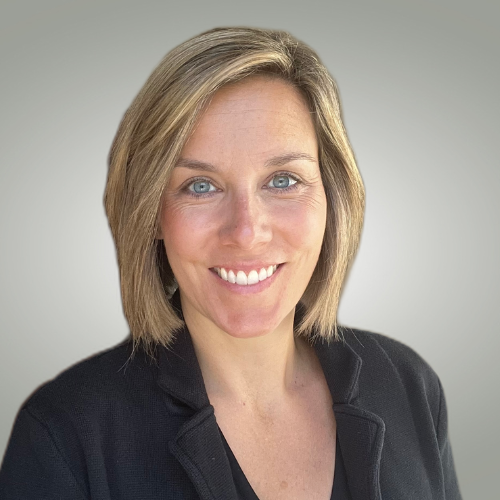
Above all, approach life responsibly, grow responsibly, and consider sustainability in all aspects of life.
While we reached out to all the women on New Jersey Future’s Board of Trustees, Jane M. Kenny, Founder and Managing Partner of The Whitman Strategy Group LLC, stressed the importance of interviewing Katie Feery, Director of Strategic Initiatives and Sustainability at New Jersey Resources. Katie knows all about green jobs and meeting our greenhouse gas reduction goals.
Ms. Feery is responsible for the publication of the Annual Corporate Sustainability Report from New Jersey Resources, the state’s largest developer of renewable energy. “It’s part of our guiding principles,” explains Ms. Feery. “Reporting out transparent, collective corporatewide information on our progress toward our goals and the importance of innovative energy solutions and responsible development. This annual comprehensive report also covers the many engagement channels of New Jersey Resources, our approach to sustainability, environmental issues, and our social responsibility.”
Ms. Feery is also proud to be on the Advisory Board for the PSEG Institute for Sustainability Studies at Montclair State University. The Institute supports transdisciplinary research and community projects that grow more resilient communities globally. Through partnerships with New Jersey-based and multi-national corporations and organizations, they address local and global sustainability challenges, including climate change, emissions, energy, clean water, waste, food, and food insecurity.
“I see a lot of women in the field of sustainability and less in the traditional energy industry,” states Ms. Feery. “My advice to those entering the field is to take advantage of the growing focus on data – what gets measured, gets done. Figure out what we’re striving for and what’s inspiring you as an individual.
“How do women plan?” she continued. “We plan for future generations. We have diverse perspectives that help us to keep others in mind.”
Among her mentors, Ms. Feery counts New Jersey Future’s former board member Kathleen Ellis, a former colleague at New Jersey Resources and the first woman to hold the post of chief operating officer at New Jersey Natural Gas.
As a follow-up, Ms. Feery shared Sustainability Magazine’s article. Sustainability Paves Way for More Women in C-Suite Roles.
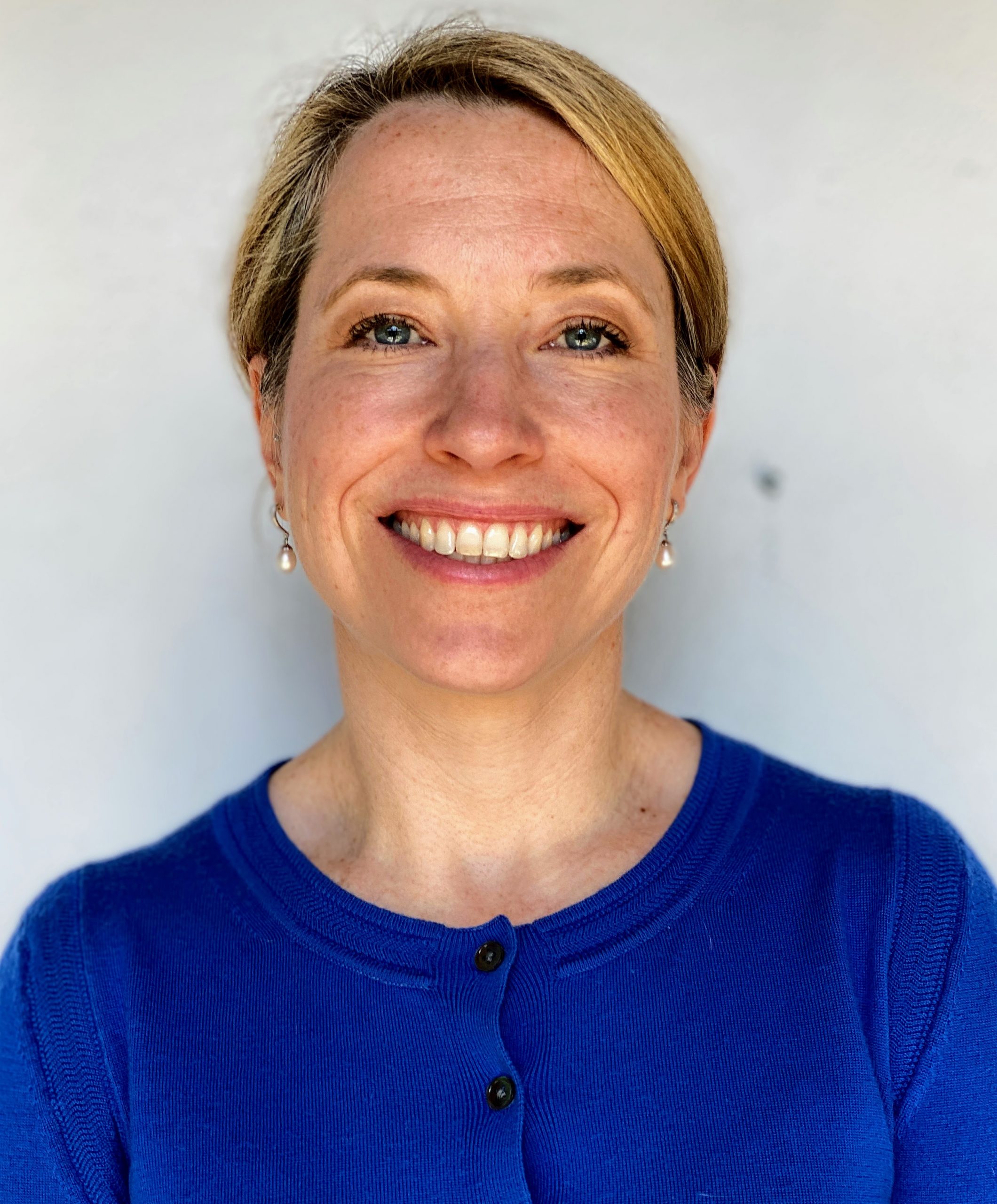
I would love to see more women involved. More voices in a community’s master plan will result in better zoning.
“While I always wanted to ‘save the trees’ and do environmental policy, I didn’t know there was a thing called a ‘planner,’” shares Elizabeth (Beth) McManus, Principal of Kyle + McManus Associates. “I was somewhat interested in water issues and pollution, but when my professor talked about sprawl, that’s when it really changed for me, and I wanted to learn all I could possibly know.”
Ms. McManus has over 20 years of experience in public and private sector planning. She prepares planning studies for various municipal and private clients and advises municipal planning boards, zoning boards, and governing bodies on public policy and land development practice. Ms. McManus has extensive experience serving as Special Master for the New Jersey Superior Court in more than 40 cases where municipalities seek review and approval of their housing plans.
Even with this prestigious background and experience, Ms. McManus notes, “nearly every boss I have ever worked for and had to fill in during a meeting has been a man. Now, my business partner is a man, and we sometimes fill in for each other. Countless times, the reaction I get when I walk into a room and say, ‘I’m here in place of so-and-so’ is ‘You’re much prettier than him.’
“Another weird thing is that some men, always older, claim they don’t recognize me when I wear my hair down. Not sure which is worse – that they don’t actually recognize me or that they say that.”
Ms. McManus continues, “I understand the demographics have been that white men have been in this longer. A lot of times, I’m the only woman in the room, and when I’m assumed to be someone’s secretary, I do get over it because you have to have tough skin. That said, I am pleased to see more women entering the field every year.”
When it comes to advice for the next generation of women, Ms. McManus explains, “know the reality of long hours, and late nights, in this field. I’m out up to four nights a week, sometimes until 10 or 11 p.m. I’m not a parent, but I can imagine how difficult this job would be if you don’t have flexibility in your personal life. My schedule is unpredictable, and often meetings get canceled last minute, and I’m already on my way. But, the night meetings are exciting – it’s where your work and effort gets realized.”
Where does Ms. McManus see more job opportunities? “It is a very progressive field, especially in affordable housing. I’m proud of our state because we are one of the few that require affordable housing. Also, like New Jersey Future, my values are to work on real infrastructure issues and provide a voice for those in our communities.”
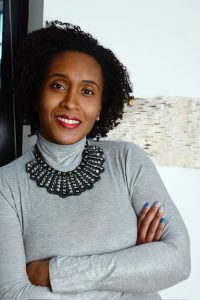
Be resilient. In any career, you will encounter challenges and setbacks, but it is important to remain passionate about your goals and persevere in your efforts to make positive change.
“My inspiration for being in the urban policy field is rooted in what I believe is my sense of responsibility to contribute to the betterment of communities,” states Tenisha N. Malcolm-Wint, Director, Urban Mayors Policy Center, John S. Watson Institute for Urban Policy & Research at Kean University. “I believe my lived experience and that of my immediate family contribute in large and small ways of influencing the decision-making processes and shaping the direction of government actions.”
Ms. Malcolm-Wint commented, “I don’t see as many women as I’d like in this field, and I attribute that to the absence of visible and authentic female leaders. This void can make it challenging for aspiring women to envision themselves succeeding in these fields.
When offering key advice for emerging women leaders, she suggests “staying informed on trends, current challenges, and innovative solutions through podcasts, books, articles, documentaries, and online resources. Another way is to participate in local community initiatives, volunteer for organizations working on urban development or environmental issues, and attend relevant events.” She continued, “This hands-on experience will provide valuable insights and networking opportunities.”
Ms. Malcolm-Wint also has extensive experience working with nonprofits involved in conservation, including being a former Director of Cities Programs for The Nature Conservancy. She is also the Founder and Chief Outdoor Experience Officer (COEO) of Outdoors On Purpose, a hiking community developed to encourage all people to find respite and joy outdoors.
“I’ve always had a deep love for the outdoors!” she exclaims. “When the pandemic hit, and I found myself with more time and flexibility, I made a conscious decision to spend as much time outdoors as possible, both for my physical well-being and as a means to combat Zoom fatigue. What started as a personal commitment quickly evolved as friends and family began to join me, and it became a movement. It’s been a journey filled with organic growth and the pure delight of sharing experiences in the great outdoors with like-minded individuals.”
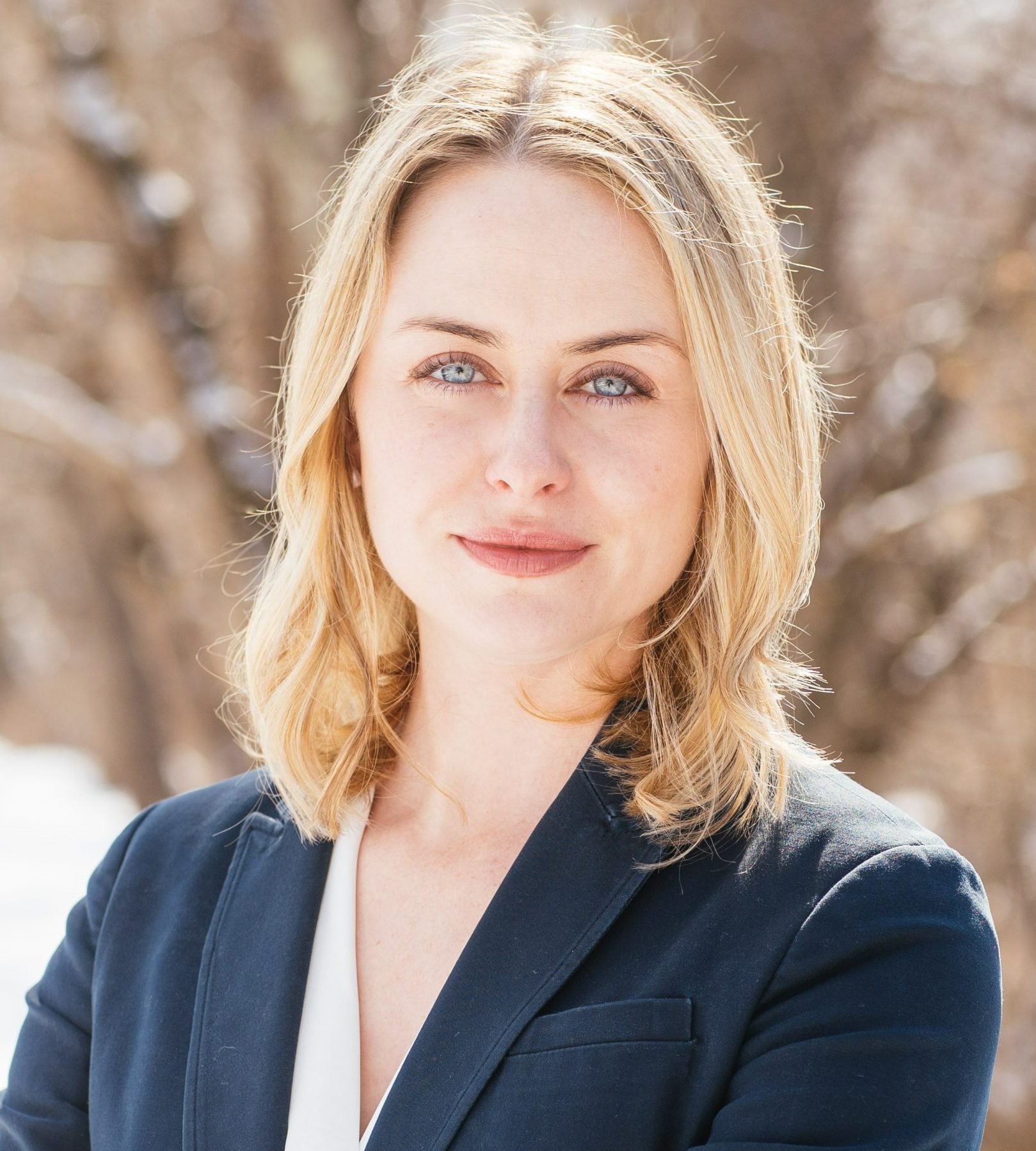
Women have a strategic way of thinking that is so valuable. They handle multiple variables and many steps – Super important in ANY industry.
Congratulations to our Board of Trustees Member Madeline Urbish on her new position as Head of Public Affairs, Region Americas at Ørsted, a leader in renewable energy. Prior to this, Ms. Urbish was Ørsted’s Head of Government Affairs and Policy for New Jersey.
“I did not intentionally get into clean energy,” shares Ms. Urbish. “I started my career working in criminal justice policy and then moved to DC to work on Capitol Hill where I was exposed to many different issues, including water resources. When I came back to New Jersey, I worked with NJ Audubon, an organization committed to connecting all people with nature and stewarding the nature of today for all people of tomorrow.
“I’m pleased to see more women entering the industry, but we still have a long way to go,” remarks Ms. Urbish. “When I attend energy conferences at both the US and global level, there are still so many more men than women.
“Advice I would give to young women entering this field is don’t hesitate to join the table and provide your feedback. Diversity brings different perspectives and different life experiences. While It’s a dynamic, fast-moving industry with technology, large-scale infrastructure takes a long time to build together. We need visionaries!”
As for her own mentors, Ms. Urbish shares how lucky she feels to have had so many incredible women as mentors in her career. In particular, Kathleen Frangione, with whom she has worked in the Governor’s Office and at Ørsted, has been an incredible mentor and friend. Additionally, Ms. Urbish reflects fondly on her time as an intern with Assemblywoman Bonnie Watson Coleman. “She is such a force and broke so many barriers. I gained such valuable work experience being part of her team.”
Thank you to all the remarkable women on our Board of Trustees! We are grateful for their commitment to New Jersey Future!
Related Posts
 March 17, 2023 Transportation for Everyone: Designing Safe, Sustainable Options for Women
March 17, 2023 Transportation for Everyone: Designing Safe, Sustainable Options for Women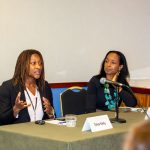 July 18, 2023 The Changing Faces of New Jersey Developers
July 18, 2023 The Changing Faces of New Jersey Developers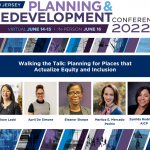 July 8, 2022 Walking the Talk: Planning for Places that Actualize Equity and Inclusion
July 8, 2022 Walking the Talk: Planning for Places that Actualize Equity and Inclusion July 8, 2022 Equitable, Sustainable Development and Redevelopment for a Bright New Jersey Future
July 8, 2022 Equitable, Sustainable Development and Redevelopment for a Bright New Jersey Future May 23, 2022 Supporting Equitable Access to Transit and Active Transportation
May 23, 2022 Supporting Equitable Access to Transit and Active Transportation
Posted in New Jersey Future Blog, Planning and Governance, Smart Growth
Tags: changemakers, emerging women leaders, next generation, placemaking, planners, planning, sustainability, urban planning, women in planning, women leaders, Women’s History Month
Comments are closed.

